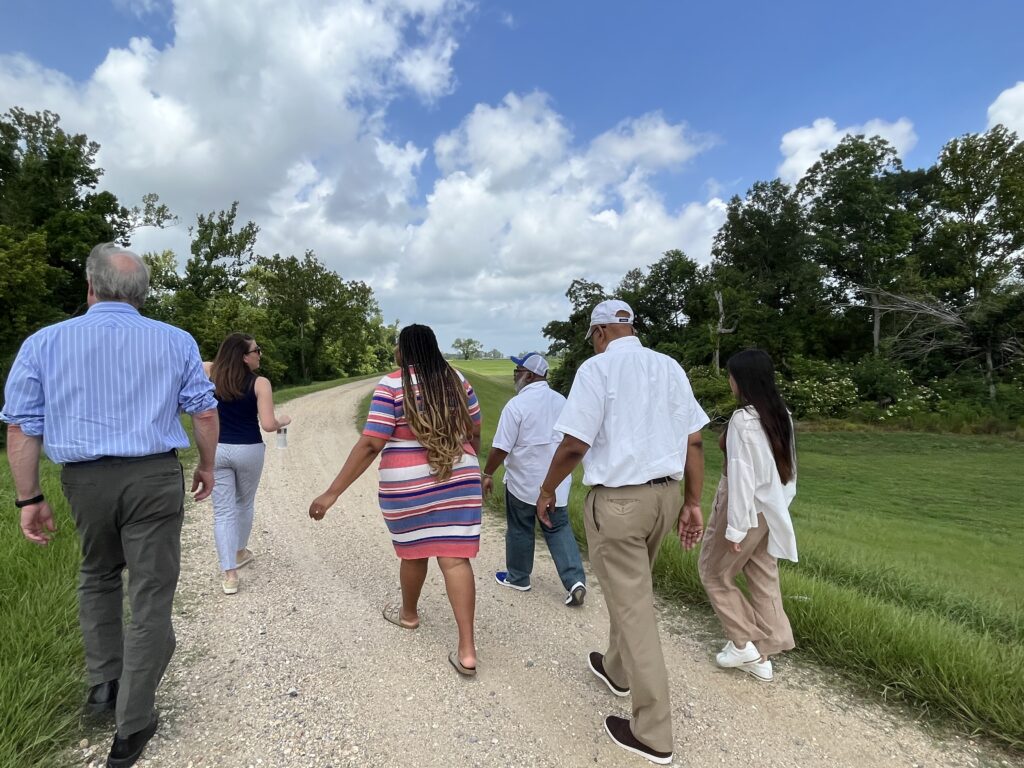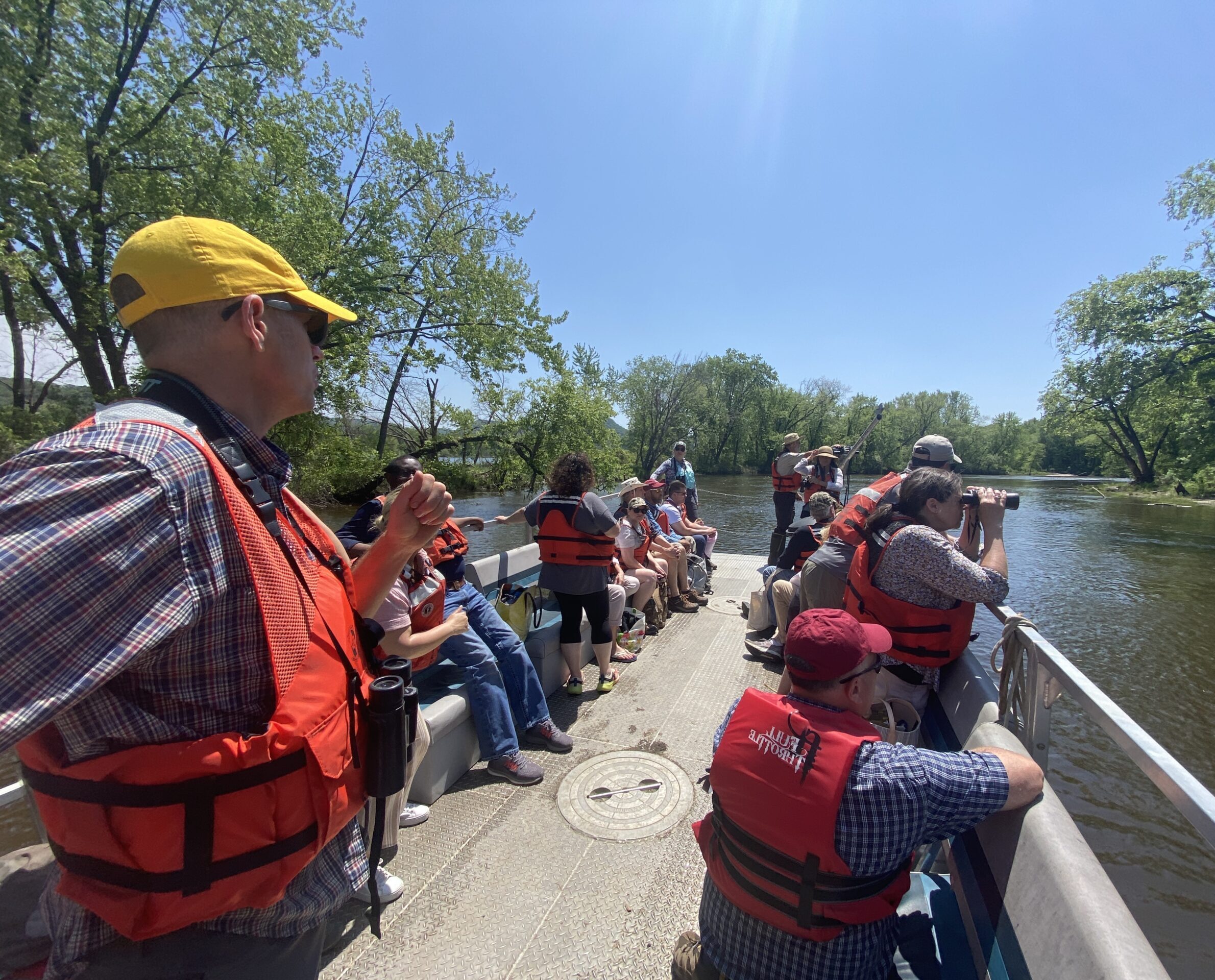
Events
Legislators Learn About a Healthy Mississippi River Through Hands-On Activities
June 2023
Between May 30 and June 16, Mississippi River Legislative Caucus (MRLC) staff traveled from Wisconsin to Louisiana meeting with state legislators and going on immersive tours to better understand solutions for protecting the Mississippi River. Learn more about each of the stops below.
Stop 1: Mississippi River Natural Infrastructure Boat Tour with the National Audubon Society and U.S. Fish and Wildlife Service
May 30
On this tour, state legislators from Minnesota and Wisconsin convened at the Upper Mississippi River National Fish & Wildlife Refuge Visitor Center near La Crosse, Wisconsin to learn about the history of the river and its ecosystems. Legislators and key experts then embarked on a boat ride on the Mississippi River witnessing firsthand the benefits of natural infrastructure including habitat preservation, decreased soil erosion, and preventing flood damages. Legislators also learned about policy solutions for habitat preservation and water quality.
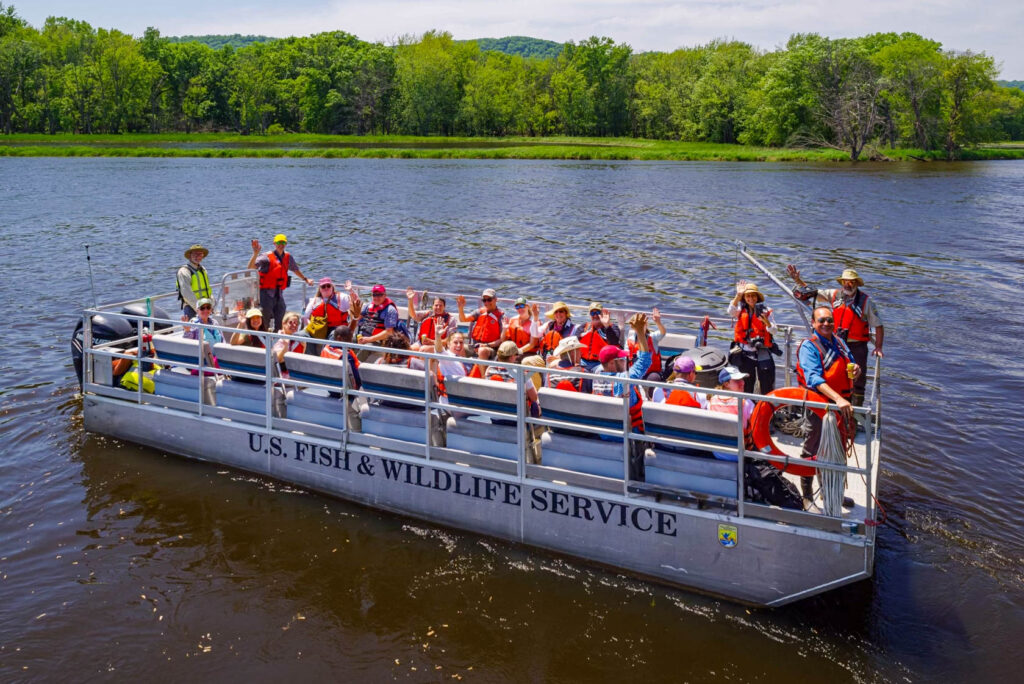
“Minnesota Legislators are lucky to partner with our Wisconsin colleagues, the National Caucus of Environmental Legislators, USFWS, and the National Audubon Society to learn about natural infrastructure solutions to protect the Mississippi River and the people and wildlife that depend on it.”
– MN Representative Sydney Jordan
“The Mississippi River Legislative Caucus under the NCEL umbrella provides very positive networking and learning opportunities. Our boat trip on the Mississippi backwaters and main channel was an excellent firsthand learning experience on efforts to restore native species, foster natural habitat, create water calming initiatives and provide refuge on the national bird flyway. It’s not every day that legislators get to spend a beautiful day on the river with so many field experts!”
– WI Representative Jill Billings
Stop 2: Tile-Treatment Wetland Tour with The Wetlands Initiative
June 11
Attendees toured a tile-treatment wetland in Dwight, Illinois and learned about other natural solutions to combat nutrient pollution and promote sustainable agriculture. Experts from The Wetlands Initiative, the Mississippi River Network, and the Environmental Policy and Innovation Center facilitated a discussion on the importance of supporting wetlands and other conservation practices through state policies and innovative models to leverage federal funding opportunities.
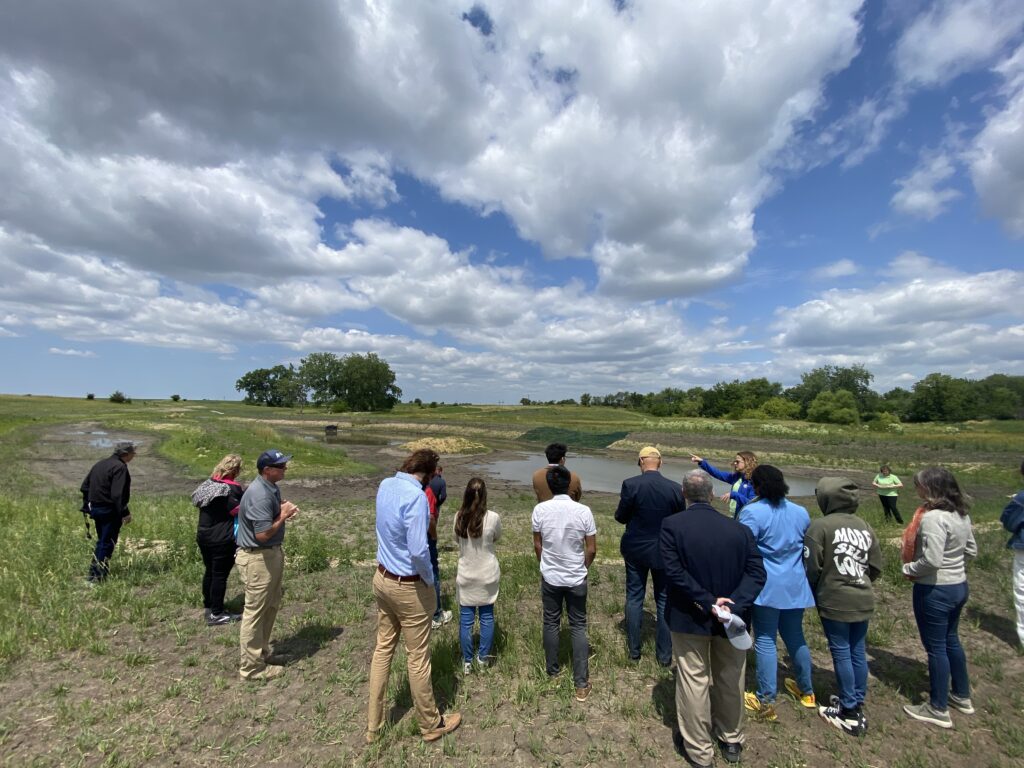
“One thing I have learned today is the importance of wetlands in capturing chemical runoff. We know that wetlands are able to prevent nutrient loss, which if not captured, goes into the Illinois River and the Mississippi River, all the way to New Orleans. I think it’s imperative that Illinois steps up its game and make more programs available for partnerships with farmers and landowners, so that we can really get ahead of the curve of this problem….This is a bipartisan issue and it needs to have bipartisan solutions.
– IL Senator Dave Koehler
“It was a real pleasure learning how farmers can use wetlands to help protect our waterways. I loved getting out in the field with colleagues and advocates to discover new ways to improve our environment as well as the business of agriculture for years to come.”
– IL Representative Sonya Harper
Stop 3: Stormwater Walking Tour at the University of Northern Iowa with the Iowa Environmental Council
June 12
On this tour, attendees got the opportunity to go on a walking tour around the University of Northern Iowa campus in Cedar Falls, Iowa and learn about existing stormwater infrastructure from the Iowa Department of Natural Resources expert. Legislators were able to see how various examples of stormwater infrastructure around campus contribute to floodplain resilience, soil health, water quality, and overall river health. The walking tour was followed by presentations from a stormwater specialist from the City of Cedar Falls and from the Environmental Policy and Innovation Center on innovative models of pay-for-success models of conservation that leverage federal infrastructure funds and private investor interest to increase the speed and scale of conservation results while also reducing risk.
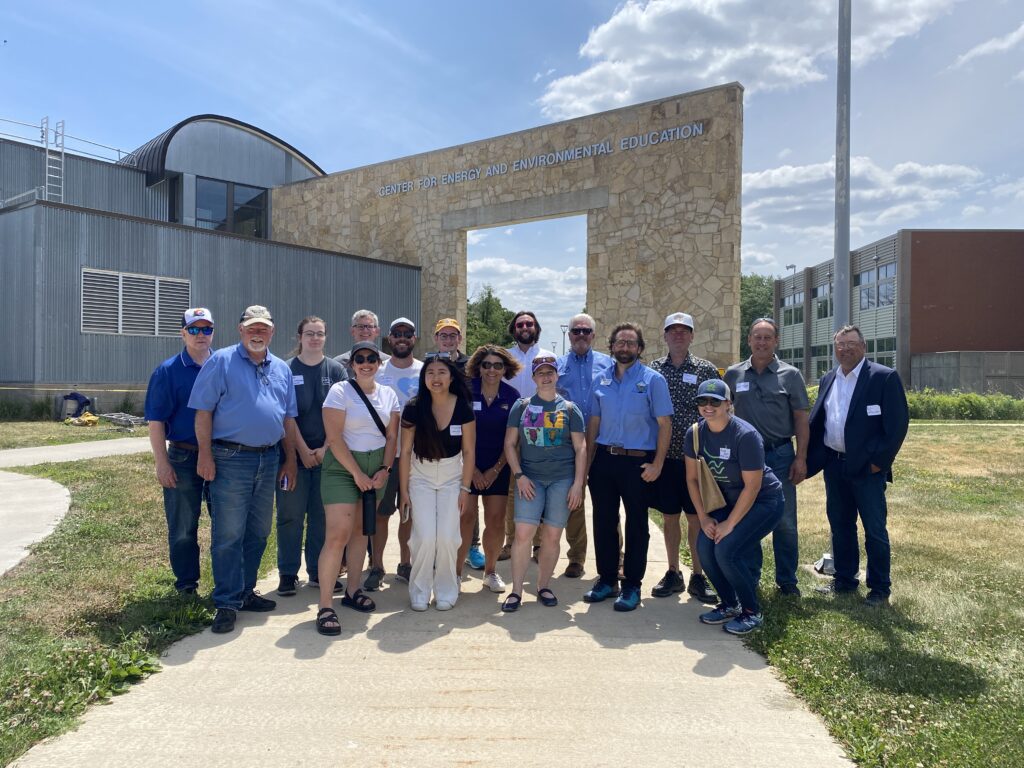
“We had a really great conversation today about local governments and what they’re doing in terms of stormwater mitigation in urban Iowa and then opportunities to try and take on some of the agricultural causes of water impediments here in Iowa. It was a really great bipartisan conversation, and I really appreciated all the perspectives”
– IA Representative Adam Zabner
“It was great to participate in this event where we toured the UNI campus to see the research-based stormwater practices they’ve implemented and to understand a little bit better how that works in the environment and improves water quality”
– IA Representative Chad Ingles
Stop 4: Industrial Corridor PFAS Bus Tour with The Water Collaborative of Greater New Orleans
June 16
On this bus tour, attendees got the opportunity to tour around Louisiana’s Industrial Corridor and learn from key experts at The Water Collaborative of Greater New Orleans on per- and polyfluoroalkyl substances (PFAS), water contamination, and water infrastructure solutions. The bus tour was followed by a round table discussion of ways to leverage federal funding opportunities to help disadvantaged communities as well as overall watershed management strategies that are applicable in both Mississippi and Louisiana.
